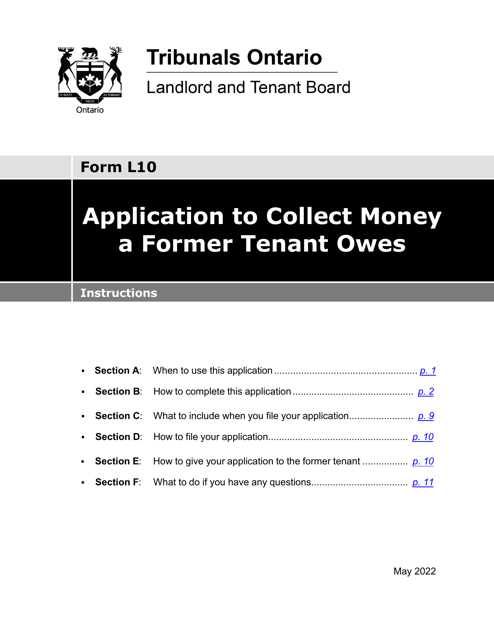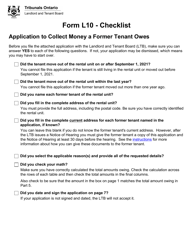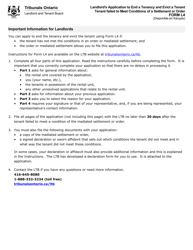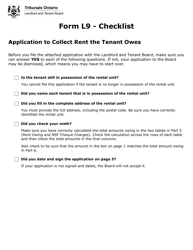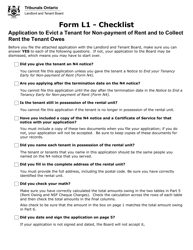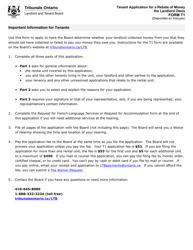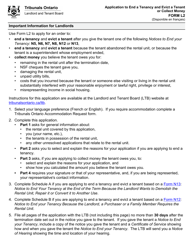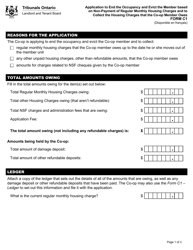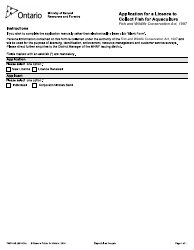Instructions for Form L10 Application to Collect Money a Former Tenant Owes - Ontario, Canada
Form L10, also known as "Application to Collect Money a Former Tenant Owes," is used in Ontario, Canada, by landlords to seek compensation for unpaid rent or damages from a tenant after they have moved out. It is a legal document that allows landlords to formally request the payment of outstanding debts from their former tenants.
In Ontario, Canada, the landlord or their authorized representative typically files the Instructions for Form L10 Application to Collect Money a Former Tenant Owes.
Instructions for Form L10 Application to Collect Money a Former Tenant Owes - Ontario, Canada - Frequently Asked Questions (FAQ)
Q: What is Form L10?
A: Form L10 is an application to collect money that a former tenant owes in Ontario, Canada.
Q: How can I use Form L10?
A: You can use Form L10 to apply for a hearing at the Landlord and Tenant Board in order to obtain a money order against a former tenant who owes you money.
Q: What information is required on Form L10?
A: Form L10 requires information such as your name, address, the former tenant's name, and the amount of money owed.
Q: Is there a fee for submitting Form L10?
A: Yes, there is a fee for submitting Form L10. Currently, the fee is $190.
Q: What happens after I submit Form L10?
A: After you submit Form L10, the Landlord and Tenant Board will review your application and schedule a hearing.
Q: What can I expect at the hearing for Form L10?
A: At the hearing, you will have the opportunity to present your case and provide evidence of the money owed by the former tenant.
Q: What happens if I win the case at the hearing?
A: If you win the case, the Landlord and Tenant Board will issue a money order that you can use to collect the money owed by the former tenant.
Q: Can I get legal representation for the hearing?
A: Yes, you have the option to hire a lawyer or legal representative to assist you with the hearing and the application process.
